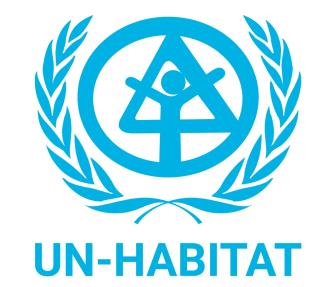More than half of planet Earth’s population lives in cities, so local government and municipal authorities have huge influence on most people’s quality of life. Rapid urbanization, especially in the global South, means that the funding available for local authorities to invest in much-needed infrastructure and services falls far short of real needs. Discussions on the third day of WUF12 focused on how to remedy this situation, when the annual financing gap between what is currently available and what would be needed to achieve the Sustainable Development Goals (SDGs) stands at USD 2.5 to 4 trillion a year.
Want to dig deeper into today's talks? Read the full Earth Negotiations Bulletin daily report.
In the morning, parallel dialogues addressed what kinds of partnerships will promote social inclusion and bring dignified housing and water and sanitation services to all, and how local authorities can improve their ability to access financing, respectively. In one session, participants were invited to look under their chairs for a “golden ticket”—an exercise highlighting that only a very small percentage of governments are able to access financing from international capital markets. Spain highlighted the prospect of renewed commitments by the international community to provide financing for local action on the SDGs, through the upcoming Fourth International Conference on Financing for Development (FfD4) in 2025.
In the afternoon, the Government of Egypt hosted a Special Session on sources of financing. Speakers from Egypt noted that real estate investment has grown enormously in the past 10 years, based on population growth and the ensuing housing demand. They highlighted Egypt’s economic reforms to improve the investment climate, citing the country’s Decent Life Initiative for developing rural infrastructure, including, for example, loans to young people and women for small and medium-sized enterprises (SMEs), and services for industrial sites in rural areas. Speakers also noted the role of the armed forces in responding to natural and industrial disasters, and in maintaining national security and social cohesion, suggesting that they complement the private sector’s role.
Other Special Sessions in the afternoon discussed the contribution of G7 countries to implementing policy aims toward sustainable cities at home and abroad, and the legacy of mega events, namely, the Olympics, World Expo events, and World Urban Forums. City mayors and town planners highlighted the importance of placing residents at the heart of new infrastructure plans, planning for the long term, and treating mega events as opportunities for visitor and youth education.
Wrapping up the day, a session with former heads of UN-Habitat discussed how to take forward the New Urban Agenda (NUA). Speakers expressed satisfaction that local and regional governments are now better recognized within the UN system, and looked forward to opportunities presented by the UN General Assembly’s adoption of the Pact for the Future.

